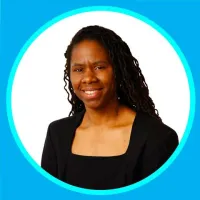
Do you need more than just another Health Coach/Instructor?
Many people ask me if I am a Health Coach. I emphatically tell them that I am not a Health Coach. Rather, I am an Integrative Wellness Mentor. Over the course of several years, I have come to realize that many people do not understand the difference between the two and are in fact looking for a mentor without realizing so.
“Coaching is about skills and knowledge acquisition. Mentoring is transformational and involves much more than simply acquiring a specific skill or knowledge.”
Let us take a moment to look at 10 ways they are different:
Differentiator #1:
Coaching is task oriented. It seeks to bring the coachee to a different level of competency in terms of learning new skills or knowledge. The focus is on concrete issues, such as managing more effectively, speaking more articulately, or learning how to think strategically. This requires a content expert (coach) who is capable of teaching the coachee how to develop these skills. What is necessary for this to be successful is for the coach to have credibility as an expert and be able to communicate effectively with the coachee. Developing an ongoing personal relationship is not a critical factor for success.
Mentoring is relationship oriented. It seeks to provide a safe environment where the mentoree can share whatever critical issues affect his or her professional and personal success. Although specific learning goals or competencies may be used as a basis for creating the relationship, mentoring’s focus goes beyond these areas to include things like work/life balance, self-confidence, self-perception, and how the personal influences the professional. Content expertise is not as critical for the mentor since he or she plays the role of facilitator rather than coach.
Differentiator #2:
Coaching is short term. A coach can successfully be involved with a coachee for a short period of time. The coaching lasts for as long as needed depending on the purpose of the coaching relationship.
Mentoring is always long term. Mentoring, to be successful, requires time in which both partners can learn about one another and build a climate of trust that creates an environment in which the mentoree can feel secure in sharing the real issues that impact his or her success. At the beginning of a mentoring relationship, pairs are likely to discuss more general and task issues rather than “hot button” issues—that is until the mentor and mentoree achieve a certain level of trust. Once achieved, however, mentoring truly begins. For mentoring relationships to be successful, a mentoring program needs to last nine months to a year.
Differentiator #3:
Coaching is performance driven. The purpose of coaching is to improve the individual’s performance on the job. This involves either enhancing current skills or acquiring new skills. Once skills are acquired successfully, the coaching is no longer needed.
Mentoring is development driven. Its purpose is to develop the individual not on the current job but for the future. This distinction helps to differentiate the role of the immediate manager and that of the mentor. It also reduces the possibility of creating conflict between the employee’s manager and the mentor.
Differentiator #4:
Coaching does not require design. Coaching can be conducted almost immediately on any given topic. If a company is seeking to provide coaching to a large group of individuals, then certainly some sort of coaching program “design” is involved in order to determine the expertise needed and assessment tools that will be used. But this doesn’t usually require a long lead time to implement. Mentoring requires a design phase. This phase helps determine the mentoring program’s strategic purpose, the relationship’s focus areas, the mentoring model, and the specific components that will guide the relationship, especially the matching process.
Differentiator # 5:
Coaches primarily focus on business issues. If I am coaching someone on how to use a sophisticated software system or how to write better reports, it’s not necessary to engage the coachee in understanding his or her personal world view for this to be effective. So, once the coaching is over, people will ask questions like, “Can the person use the system?” or “Can the person now write effectively?” These are the purposes and outcomes of coaching, not whether the coachee feels better or views this as a step in his or her career.
Mentors balance both the business and the personal. When mentors act as coaches, they won’t need to understand the mentoree’s inner feelings. However, when the mentor deals with, say, how the mentoree’s personal effectiveness is impacted by the business environment, then the focus is more personal. Mentoring seeks to create inner change as well as behavioral change.
Differentiator #6:
Coaching usually involves a smaller monetary investment.
Formal mentoring involves a larger monetary investment up front, but costs less over time. Although the investment cost may be higher initially, over time, the mentoring investment will be smaller than coaching
Differentiator #7:
Coaches are experts in specific areas. Therefore, content expertise is a requirement for effective coaching. The coach is the one who guides and directs the coachee in learning the expertise the coach has to offer.
A mentor is a developmental facilitator. The mentor may have content expertise, but what is more important is to have the interpersonal skills to create a safe learning environment. In this environment, the mentoree can be empowered to seek his or her own solutions and to find expertise when needed if it does not reside with the mentor. mentioned earlier, the manager’s ability to influence the mentoree’s future does not allow for as much freedom and openness to occur.
Differentiator #8:
Coaching is one-directional. It is focused on the coachee’s needs, and the coach is not expecting to gain anything except compensation for services provided. Whether a coach gains insight into himself of herself as a coach or learns anything new from the coachee is irrelevant to effective coaching.
Mentoring is bi-directional. Both mentors and mentorees gain through the relationship. Mentors often articulate that they gain new perspective, a link with a person from another area of the company, a renewed sense of their own abilities and expertise, and the satisfaction in knowing they have assisted another person in developing professionally and personally.
Differentiator #9:
Coaching involves content and expertise. As such, coaching does not focus on the inner dynamics of a person’s personality or history. It is focused on the businessperson as an effective member of the particular department he or she works for.
Mentoring is concerned with both business and personal. It believes that the business and the personal infuse and affect one another. Mentoring discussions focus on interpersonal dynamics on how the mentoree’s view of the world, sense of self, ethics, and values impact the mentoree’s development. For this reason, mentoring has a spiritual component. By that, we mean it is focused on the whole person and in areas that don’t typically come up in the workplace. Mentoring seeks to integrate the business and the personal so that they form one whole individual.
Differentiator #10:
Coaching is concerned about behavioral transformation. In other words, coaching focuses on getting someone to do something better and gain new expertise. Whether that behavior translates itself into actually changing the inner personal dynamics of the coachee is not the prime concern.
Mentoring is concerned about personal transformation. This may or may not link to a specific business competency or area of expertise. Mentoring is concerned with assisting a mentoree in maintaining his or her genuine identity as a member of the organization
As an Integrative Wellness Mentor, I have assisted many people in transforming their health and becoming empowered from previous dependency upon drugs, surgeries, and other medical disease management interventions. I seek to pass on some of the gifts of healing that were given to me by teaching women and men how to clear their minds, soothe their hearts, uplift their spirits, and nourish their bodies to heal themselves completely and serve the ones they love with passion and vitality.
Now, the question is: What are YOU looking for? A health coach or an Integrative Wellness Mentor?

© 2023 Sankofa Healing and Enrichment, Inc. - All Rights Reserved,
(850) 273-8786
